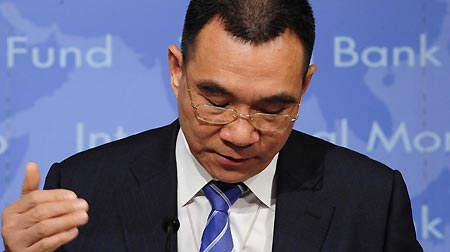| Print This Page | Email This Page |
| WB, IMF Pooling Wisdom in Bid to Pull World Economy out of Mire | ||
|
Two major world financial institutions -- the World Bank and the International Monetary Fund (IMF) -- are trying their best to pull the global economy out of its nosedive by pooling their wisdom and strength. The spring meetings of the two institutions open on Saturday in the capital of the United States, where the current global economic crisis originated.
Worrying global financial crisis The world economy has been struggling for months with continuous bleak data, which have finally made people realize that the decline is worse than previously thought. An IMF-World Bank report released on Friday warned that the global financial crisis, the most severe since the Great Depression of the 1930s, is "rapidly turning into a human and development crisis." The crisis originated in the developed world, but it has spread quickly and inexorably to the developing world, sparing no countries, according to the Global Monitoring Report 2009: A Development Emergency. The crisis is imperiling attainment of the Millennium Development Goals (MDGs) and creating an emergency for development as the poor countries are especially vulnerable, for they "lack the resources to respond with ameliorative actions," the report said. Sub-Saharan Africa, which has been growing briskly for years, has been seriously affected by the global crisis, Antoinette Monsio Sayeh, director of the IMF's African Department, told a press conference Friday at the IMF headquarters. The global crisis is also pushing some 35 million people back into poverty and vulnerability in Europe and Central Asia, according to a news briefing Friday on Europe and Central Asia Economic Update, chaired by Shigeo Katsu, vice president of the World Bank. The world economy will contract in 2009 for the first time since World War II, with every major country suffering a deep recession, the International Monetary Fund said on Wednesday. Presenting the IMF's latest bleak assessment in Washington, its economic counselor, Olivier Blanchard, said that without the radical policy measures taken since investment bank Lehman Brothers collapsed in September, the world economy would now be "in the middle of something very close to a depression." |
| Related Stories |
| Print This Page | Email This Page |
| Product Directory China Search |
Country Search Hot Buys |
